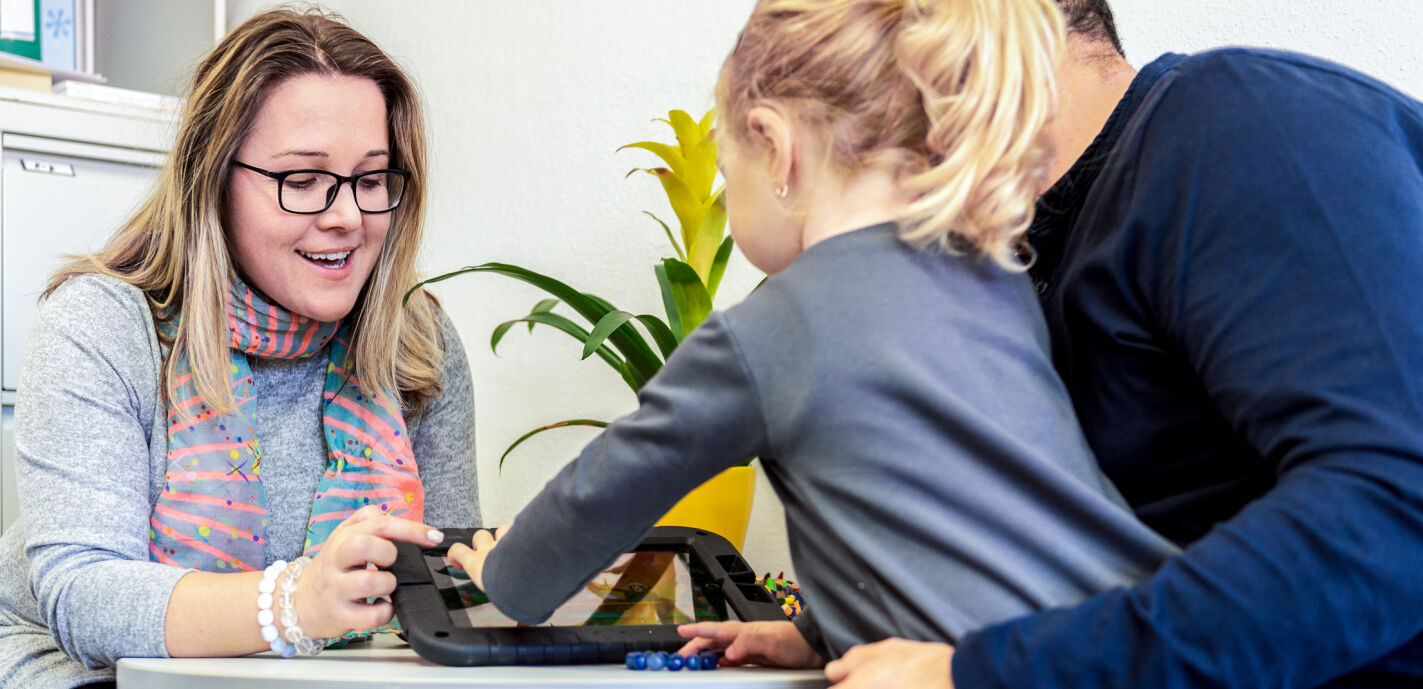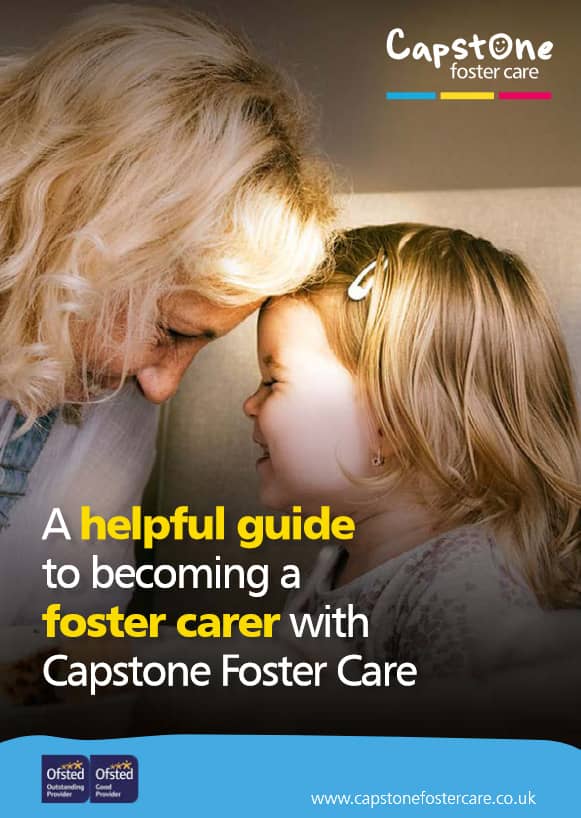


Fostering a disabled child
The role of an independent fostering agency
How to choose a foster care agency
Can I choose who I foster?
What are the benefits of fostering with an independent fostering agency?
What happens when a child is taken into care?
Fostering process: what happens on an initial home visit?
Fostering with local authority vs independent agency
A complete guide to becoming a foster carer
How Are Children in Foster Care Matched with Carers?
Foster Care Budgeting Tips
Becoming A Foster Carer
What is a Care Leaver?
What is a Foster Carer?
Fostering Regulations
How long does it take to become a Foster Carer?
What are the Foster Care requirements?
Changing IFA - Transferring to Capstone
8 reasons why a child may be taken into care
Fostering as a Career
Can you foster if you smoke or vape?
A guide to fostering assessments
LGBTQ+ Fostering
Equality, Inclusion & Anti-discriminatory Practice in Foster Care
What can disqualify you from foster care?
Can you foster if you’re on benefits?
Top transferable job skills to become a foster carer
Fostering as a same sex couple
Fostering while renting
Can you foster if you have mental health issues?
Is there an age limit for fostering in the UK?
Do foster carers get a pension?
How to foster a child: A step by step guide
How do DBS Checks Work?
Can I foster if...?
Mythbusting the top 10 Foster Care Myths
Can I foster if I am disabled?
LGBT Fostering Mythbusting
Can I foster if I have pets?
Can I Foster A Child?
Can I Foster and Work?
Can you Foster with a Criminal Record
Can Single People Foster?
LGBT Family and Foster Care
Fostering across Cultures
Muslim Fostering
Christian Foster Care
Sikh Fostering
Empty Nest Syndrome and Foster Care
Can I Foster?
What is the difference between residential care and foster care?
Fostering Babies and Young Children
What is Kinship Care?
Fostering Babies - Myths
Focusing on Parent & Child Fostering
Fostering Siblings
Fostering Teenagers
Fostering Teenagers - Breaking down the Myths
Fostering Unaccompanied and Asylum Seeking Children
Mother and Baby Foster Placements
Private Fostering
How does therapeutic fostering work?
Young Children Fostering Placements
Difference between short and long-term fostering
Types of self-harm
A Guide to the Foster Care Handbook
Reunification and Birth Parents: A Guide for Foster Carers
What is an EHC Plan? A Guide for Foster Carers
How to prepare a child for becoming a care leaver
Children who foster: impact of fostering on birth children
Fostering LGBTQ+ Youth
How to prepare your home for a foster child
How to help a lonely child: A Guide for Foster Carers
What are the National Minimum Standards for Fostering Services?
10 tips for foster children's education
How to prepare your foster child for secondary school
Tips for coping when foster placements end
Tips for foster parents during Coronavirus
What happens if foster parents get divorced?
5 ways to manage Mother's Day with foster children
Tips for managing foster children's bedtime routines
How to handle foster child bullying
Fostering allowances and the gender pay gap
What discounts can foster carers get?
How to adopt from Foster Care
5 ways to manage Father's Day for children in foster care
8 most common fostering challenges
FosterTalk Membership with Capstone Foster Care
Supporting foster children's contact with birth families
A guide to independent fostering
Keeping Children Safe Online: A Guide For Foster Carers
Movies About Foster Care
Play-based learning strategies for foster carers
A Guide to the Staying Put Program
Why Foster Parent Wellbeing Matters
How to deal with empty nest syndrome
How to recognise signs of depression in foster children
Can you take a foster child on holiday?
Tips and advice on fostering with a disability
10 tips on connecting with your Foster Child
Fostering vs Adoption - What's the difference?
How Fostering can change a future
How to adopt from Foster Care
How to encourage children to read in Foster Care
How to prepare a Foster Child's bedroom
Reading and Storytelling with Babies and Young Children
Supporting Children's Learning
The 20 most recommended books Foster Carers and young people should read
Things you can do when your children leave home
The impact of early childhood traumas on adolescence and adulthood
Anxious Disorders in Foster Children
What is sexual abuse and sexual violence
Foster Child behaviour management strategies
Foster Parent Advice: What to expect in your first year of fostering
Capstone's twelve tips at Christmas
10 celebrities who grew up in Foster Care
Could Millenials be the solution to the Foster Care crisis?
Do you work in Emergency Services?
Form F Assessor and Assessment Training
Foster Care Fortnight
Improving Children's Welfare - Celebrating Universal Children's Day
New Year - New Career - Become a Foster Carer
Young People Charities
When you apply to become a foster carer, you will go through a series of steps and phases as part of the overall fostering process. One of these steps is an initial home visit, which is an essential part of the fostering assessment process. This guide looks to explain exactly what foster care home visits entail, and how you can prepare for this initial visit.
The initial home visit for potential foster carers has an informal and casual feel and will typically last around 1 – 2 hours – depending on how much detail is required from the visit, and whether this visit is face-to-face or virtual. The main aim of this meeting is to understand if you meet the requirements to become a foster carer, and whether or not your application can proceed. The indoor and outdoor spaces of your home will also be assessed to determine how a child could benefit from living in your environment. We understand that every family is completely unique, which is why we want to get to know you. It’s also really important for you to get to know us as much as you can – this is an opportunity to ask questions about fostering and our agency. It’s a two-way conversation!
During the home visit, we’ll cover a range of conversation topics and ask questions to understand more about you and your family. Some of the topics we would typically cover include:
We’d also ask you questions about yourself to get you know you better, such as hobbies and interests, what you like to do in your spare time and anything that tells us more about you as a person. We always find this really important as children who may come to live with you will have hobbies and interests too so the more we know about you the better.
It’s worth being aware that some of the questions may feel slightly personal or intrusive, but it’s important to ask them as we need to ensure the people that we recruit are best suited to take care to take care of children and young people.
The initial home visit will be attended by our Fostering Recruitment Advisor from your independent fostering agency team.
From your side, the main carer and their partner (if relevant) need to attend the visit. Other household members can also be met as part of the assessment, including any relatives who are living there over the age of 18, or if you have a permanent lodger.
Older children are welcomed to join the meeting. Young children can also be at the meeting if necessary but we won't go into any detail with them at this stage. Everything we discuss during this visit is age appropriate. We do want the whole family to be on board with fostering though, so its helpful if you have already discussed this with your family.
After the initial home visit has been concluded, a report will be written which will recommend whether or not the application should go ahead. This will then be signed off by one of our Social Work Managers. Your decision will also be factored into this recommendation – as it’s possible that after the meeting, you may feel that fostering is not the right path for you, in which case, you can withdraw or delay your application process.
If you’ve been recommended to proceed with the application but decide not to, don’t be a stranger! In many circumstances, interest to become a foster carer is shown up to 2 years before people apply – as circumstances can dictate timings on whether fostering is the right choice there and then, such as planned home improvements pending, health priorities or birth children’s busy schedules. By staying in touch, if your circumstances do change, we’ll be there for you every step of the way.
Feel like you’re ready to make the first step and apply to become a foster carer with Capstone? Our friendly team make the process as easy as possible – simply start by making an initial enquiry by completing an online form, requesting a call back or an information pack. From there, the next step will be your home visit.
Get in touch with our expert team today to find out more about the fostering assessment process, foster care home visits and more.
If you’ve got any questions or would like to find out more about fostering with Capstone, fill out the form below.
An experienced fostering advisor from your local area will then be in touch.

Start the conversation today. Our team of friendly advisors are on hand to answer any foster care questions you may have. We can offer you honest and practical advice that can help you decide if becoming a foster carer is the right path for you.


